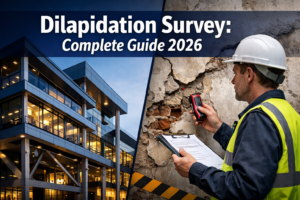Do you own a leasehold property, typically a flat or maisonette? The number of years left to run on the lease is a key component of the property’s market value, and there may come a time when a lease extension would make sense. So, what can you do?
Many leaseholders are unaware of their right to extend the lease on their property and return it to 99 years. Consider approaching the freeholder or the management agent directly with a request to extend your lease.
Under the 1993 Leasehold Reform, Housing and Urban Development Act, you have the right to a statutory lease extension if you’ve owned the property for more than 2 years, and you meet certain other eligibility criteria. Here are some of the key questions you should be asking:
Why would you need to extend the Lease Term?
Leasehold property is the best example of a depreciating asset. The lease term on leasehold property decreases approximately every day, adding to the price of extending the lease. At the end of the lease term, the freeholder gains back possession of the property.
An 80-year term is often regarded as being completely unacceptable because, right off the bat, the property is difficult to re-mortgage, mortgage, or sell. Surely enough, mortgage companies have set lending criteria and lots of lenders will simply refuse to lend on a property below 70 or so years to run (though exact figures differ between lenders.)
A statutory lease extension can achieve several different things. It adds 90 years on top of the unexpired existing lease term. If you have 74 years left on your lease then a statutory lease extension will give you a new term of 164 years. Ground rent is reduced to zero for the term of the lease. The premium payable to the landlord is also determined by Schedule 13 of the Act. Lastly, if you extend the lease before it has gone under 80 years, there is no marriage value, which is 50% of the difference of value before and after the lease extension ordinarily payable as part of the premium to the freeholder.
Do you Qualify for a Lease Extension?
To qualify for a statutory lease extension, you must have owned the property for at least 2 years, while the lease term must have been over 21 years when it was originally granted. It doesn’t matter how many years are left to run on the lease. The legislation only applies to residential property and not a business or commercial lease. It is important to note that the property will not qualify for a statutory lease extension if the landlord is a charitable housing trust and your flat is provided as part of the charity’s work. If you are in the process of buying a property on a short lease and have found that most mortgage lenders will not accept less than the ordinary lease, there is a way around the 2-year ownership clause that you will need to have on a property before any statutory process can begin.
Assuming however that the seller has already owned the property for more than 2 years, then your surveyor can initiate the statutory process now and can assign the benefit to you for free as part of the contract of sale.
What is involved in the Statutory Lease Extension process?
To start the process you would need to obtain a lease extension valuation on the property to determine the offer you should make to the freeholder, and also what the financial liability will be.
Once you have carried this out, your solicitor will serve a formal S42 Notice on your freeholder to initiate the process. The next step involves the freeholder serving a Counter-Notice. This usually requests a higher premium payment. Once a Counter Notice has been served, 6 months will begin in which to agree on a price.
Either party may refer the matter to the Leasehold Valuation Tribunal (LVT) after 2 months. Outside of our experience, we have found that the majority of cases do settle, without the need for a formal hearing. Please note you will be responsible for the freeholder’s valuation fee and their legal fees in addition to your own.
Our panel of surveyors can help you with all of this. The process of lease extension can be complicated, from experience as lease extension surveyors in Wimbledon London and the Home Counties. Surveyors carry out the necessary lease extension premium valuations, leave you stress-free with the negotiations on your behalf and then if needed can prepare and represent you at the tribunal to ensure fair freeholder compensation is achieved.
If you have any questions about extending the lease on your property, would like advice on buying a freehold property, or need expert assistance with any surveying matter, please feel free to get in touch.
















